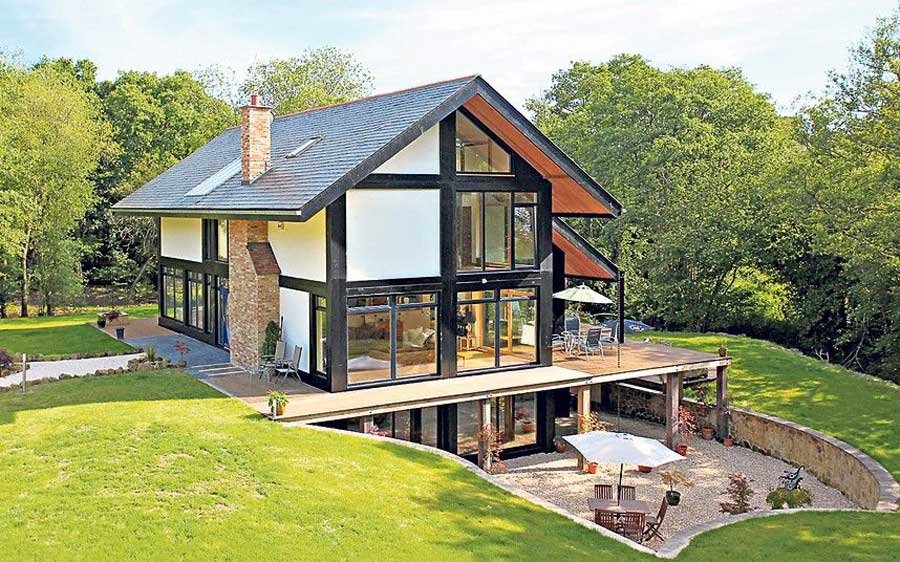Eco-friendly is in. With so many more people becoming conscious of their carbon footprint and reducing their energy consumption, the idea of an energy-efficient home is now mainstream.
It is not just about saving the planet, either – it can also be about saving a few bucks along the way. Building an eco-friendly home can be economically feasible, provided you know what you desire in your home build.
So, how does one build an eco-friendly home? It all starts with a plan and a focus. How can you balance reducing your carbon footprint with the economic pitfalls of a new home build?
Let’s take a look at some tips to help save the planet, save your wallet, and even save your sanity.
Consider your square footage
Smaller homes are more energy efficient because you are heating or cooling less square footage. We could say plenty about the tiny home movement in recent years, or we could tell you that a smaller home should be part of your home build.
Small and medium-sized house plans from providers like Monster House Plans (https://www.monsterhouseplans.com/house-plans/) can give you the home of your dreams without the trouble of building a McMansion. Besides, who needs too much home if you are single or just a married couple?
Go solar
Solar panels are not just a hippy pipe dream anymore. They are economically affordable thanks to federal and state government programs designed to deliver tax breaks. Why not seek a solar panel contractor in your state who can be part of your design efforts?
Solar panels are usually installed on a roof and engineered for maximum sun absorption. If your home is in a sunny area, you could even generate enough electricity to sell back to your energy company.
Install an energy-efficient HVAC system
An HVAC system is one of the biggest energy drains on your home – especially in temperate or freezing climates. After all, it takes plenty of power to keep your home at a consistently comfortable temperature.
Luckily, HVAC manufacturers are getting wise to engineering feats that can reduce the overall energy consumption of their units. A new HVAC unit paired with a programmable thermostat can save you plenty on electricity costs.
Programmable thermostats are intelligent enough these days to base heating and cooling a home comfortably due to algorithms. Many of them can turn off if it senses no one is home.
Contract with a window company
Windows can be another culprit in energy loss. By ensuring energy-efficient windows are part of your new home build, you can save yourself seven to fifteen percent on energy costs annually.
What makes windows such a boon for energy savings is that they are double-paned with a low emissivity gas in between panes that reflect heat energy, adding to a home’s insulation.
Furthermore, energy-efficient windows can be eligible for state or federal tax breaks, saving you thousands on your home build.
Find ways to conserve water
It is no secret that parts of the world suffer from water crises and droughts due to ongoing climate change issues. That is causing many cities, states, and countries to consider water conservation laws to prevent water waste.
You can start small in your new home build by purchasing low water consumption toilets and faucets to reduce the amount of water usage in your home. Tankless water heaters can also aid in that endeavor. If you have a garden or a lawn you enjoy maintaining, installing gutters and rain barrels are great ways to gather water without relying on city water for hydration purposes.
Other homeowners in rural areas are getting even more creative with more significant conservation efforts like rainwater tanks.
To wrap up
Going green in your new home does not mean you have to waste money. Keeping all these tips in mind as you plan out your new home means you can control costs from the beginning and roll it all into a manageable mortgage payment.
Building an eco-friendly home also makes a statement to your friends and loved ones that you take the environment seriously and wish to be part of the climate change solution. The efforts of everyone – even the small efforts – can make a sizable difference.

